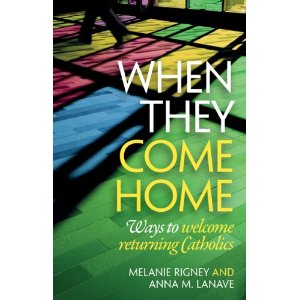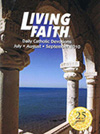 On Mondays, I answer questions frequently asked by those considering a return to the Catholic Church. How do I know this stuff? I was away for more than 30 years myself, and am the co-author of When They Come Home: Ways to Welcome Returning Catholics, a book for pastors and parish leaders interested in this ministry.
On Mondays, I answer questions frequently asked by those considering a return to the Catholic Church. How do I know this stuff? I was away for more than 30 years myself, and am the co-author of When They Come Home: Ways to Welcome Returning Catholics, a book for pastors and parish leaders interested in this ministry.
Are people who commit suicide going to hell? Can they have a Catholic funeral and be buried on consecrated ground? What about euthanasia? What about do-not-resuscitate orders?
God alone determines what happens after we leave this earth, and we pray for those who have committed suicide just as we pray for others who have died.
Like society in general, the Church has come to understand the mental illness that can accompany suicide. Under canon law, specific situations must be evaluated by the local bishop before a Catholic funeral or burial can be denied. For a denial, the person who has died must not have shown repentance before death, and must be a “notorious” apostate, heretic, or schismatic; have elected for cremation for a reason contrary to Church teachings; or be a “manifest” sinner to the degree that his or her funeral would cause a public scandal of the faithful.
As for euthanasia/physician assisted suicide, Catholics regard life as a seamless garment. It begins at conception and ends at natural death, and is valued equally at every stage in between. Devaluing life at any stage devalues each of us. Extraordinary or burdensome activities that continue life, however, need not be taken. “Here one does not will to cause death; one’s inability to impede it is merely accepted,” according to the Catechism. Such decisions rest with the patient or by those legally acting on his or her behalf.



{ 0 comments… add one now }